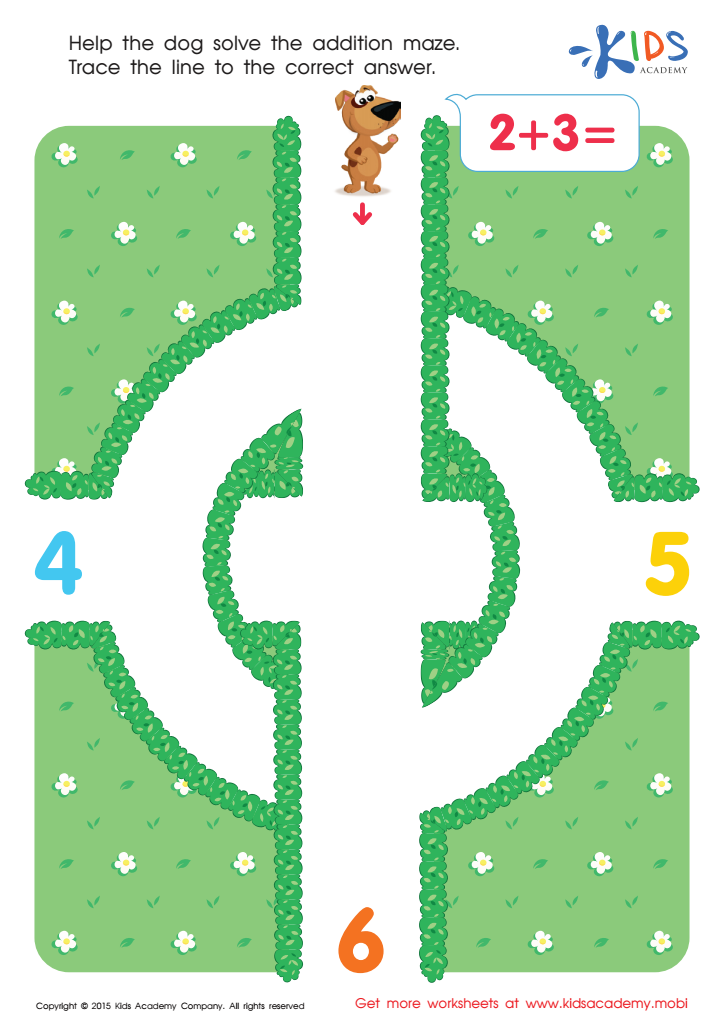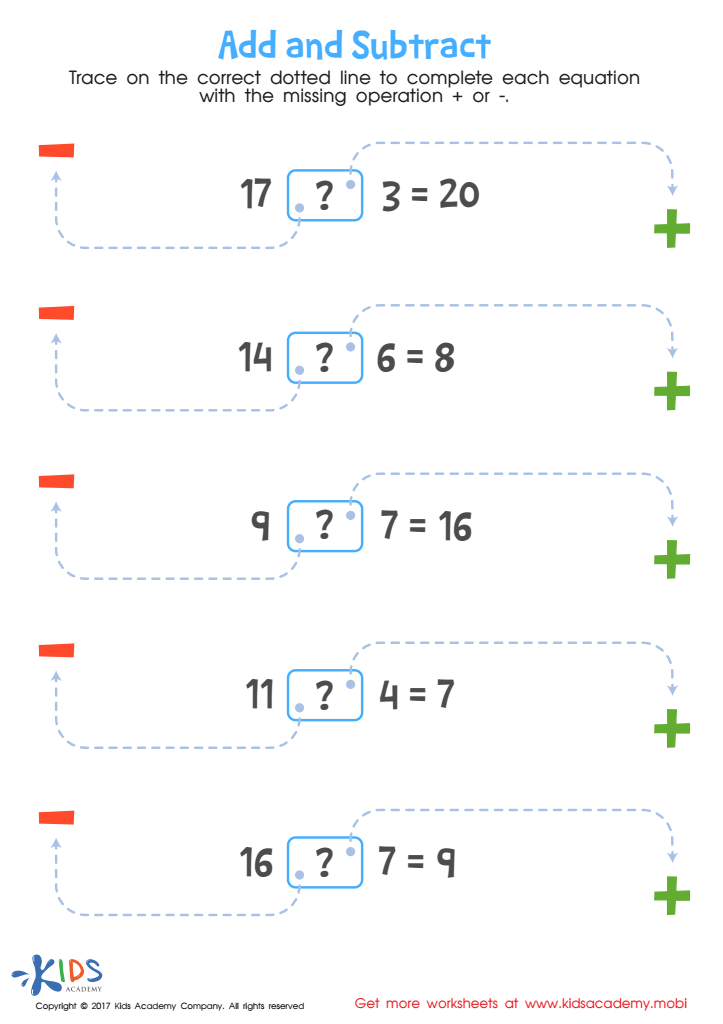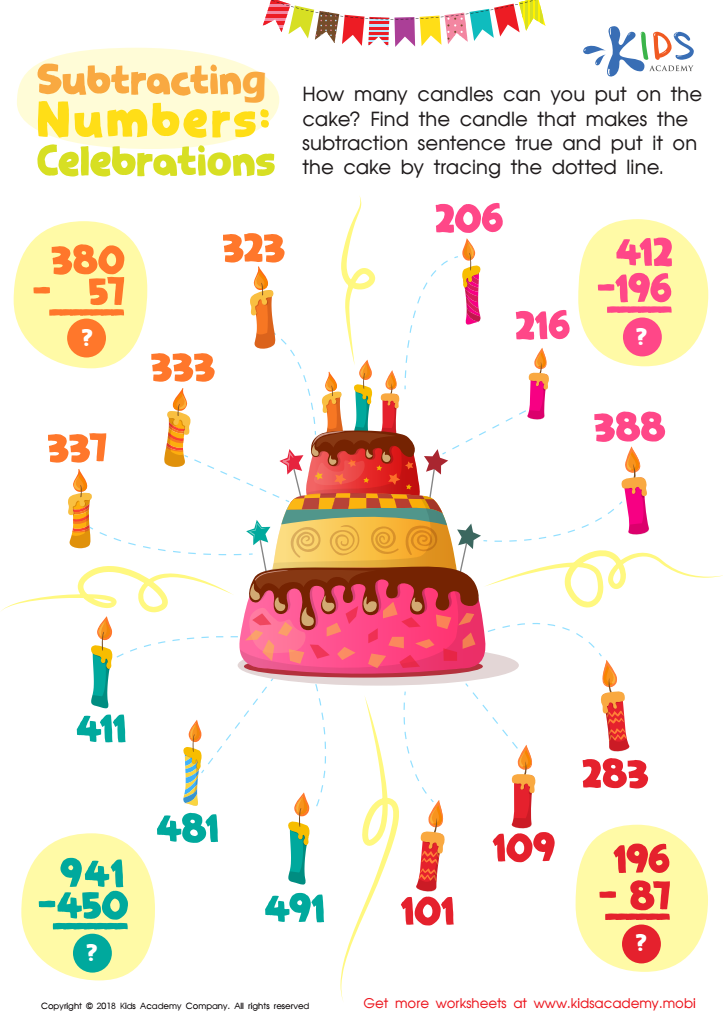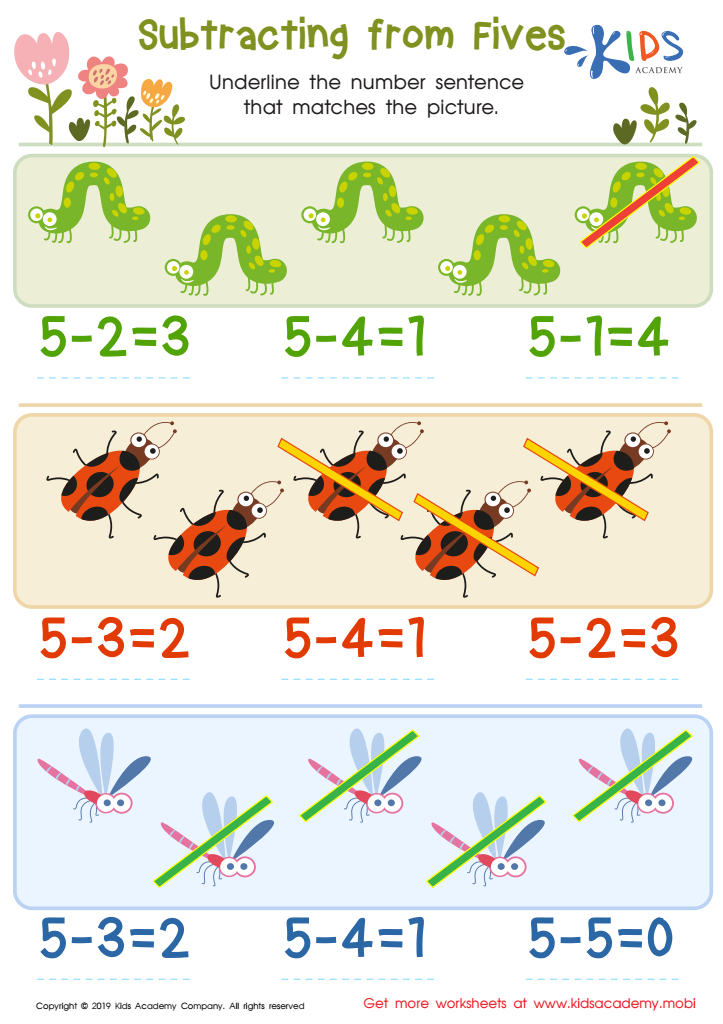Mental math skills Extra Challenge Math Worksheets for Ages 4-7
4 filtered results
-
From - To
Boost your child's confidence in numbers with our "Mental Math Skills Extra Challenge Math Worksheets" for ages 4-7. Designed to challenge young minds, these engaging worksheets transform math practice into a fun adventure. From addition and subtraction to pattern recognition and logical puzzles, each activity nurtures critical thinking and problem-solving skills. Tailored to foster a love for learning, our worksheets help develop speed and accuracy in mental calculations. Ideal for extra practice or enrichment, these resources ensure that your child masters foundational math concepts while having a blast. Unlock your child’s potential with these exciting mental math challenges!


Two And Three Addition Worksheet


Add and Subtract Worksheet


Subtracting Numbers: Celebrations Worksheet


Subtracting From Fives Worksheet
Parents and teachers should place great importance on fostering mental math skills in children aged 4-7 because it lays a crucial foundation for their overall cognitive development and academic success. During these formative years, children's brains are highly adaptable and capable of rapid learning. By introduced to Extra Challenge Math early on, students engage in problem-solving and critical thinking that enhance their numerical fluency.
Moreover, mental math directly improves children's understanding of mathematical concepts, allowing them to perform calculations in their heads without the need for written work. This skill enhances their confidence and efficiency in dealing with numbers, which translates to better performance in school.
Incorporating mental math challenges also supports the development of key cognitive skills such as memory, concentration, and logical reasoning. These skills serve students well beyond mathematics, supporting reading comprehension and science learning by enhancing their analytical abilities.
From a social-emotional perspective, early success in mental mathematics develops resilience and a positive attitude towards learning. It encourages a growth mindset, where children feel capable of tackling and overcoming challenges. Therefore, nurturing mental math skills is an investment in a child's educational journey, promoting both academic competence and confidence for future learning pathways.
 Assign to My Students
Assign to My Students




















